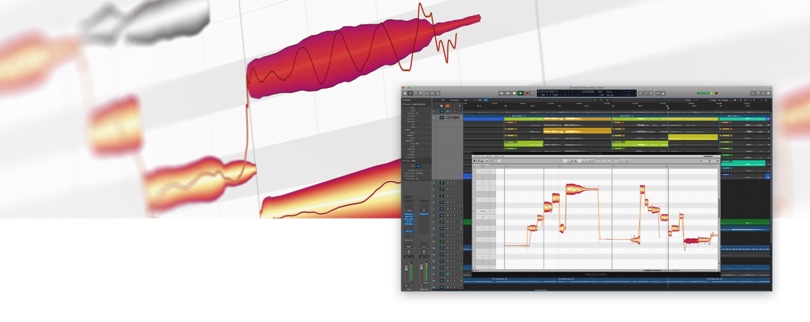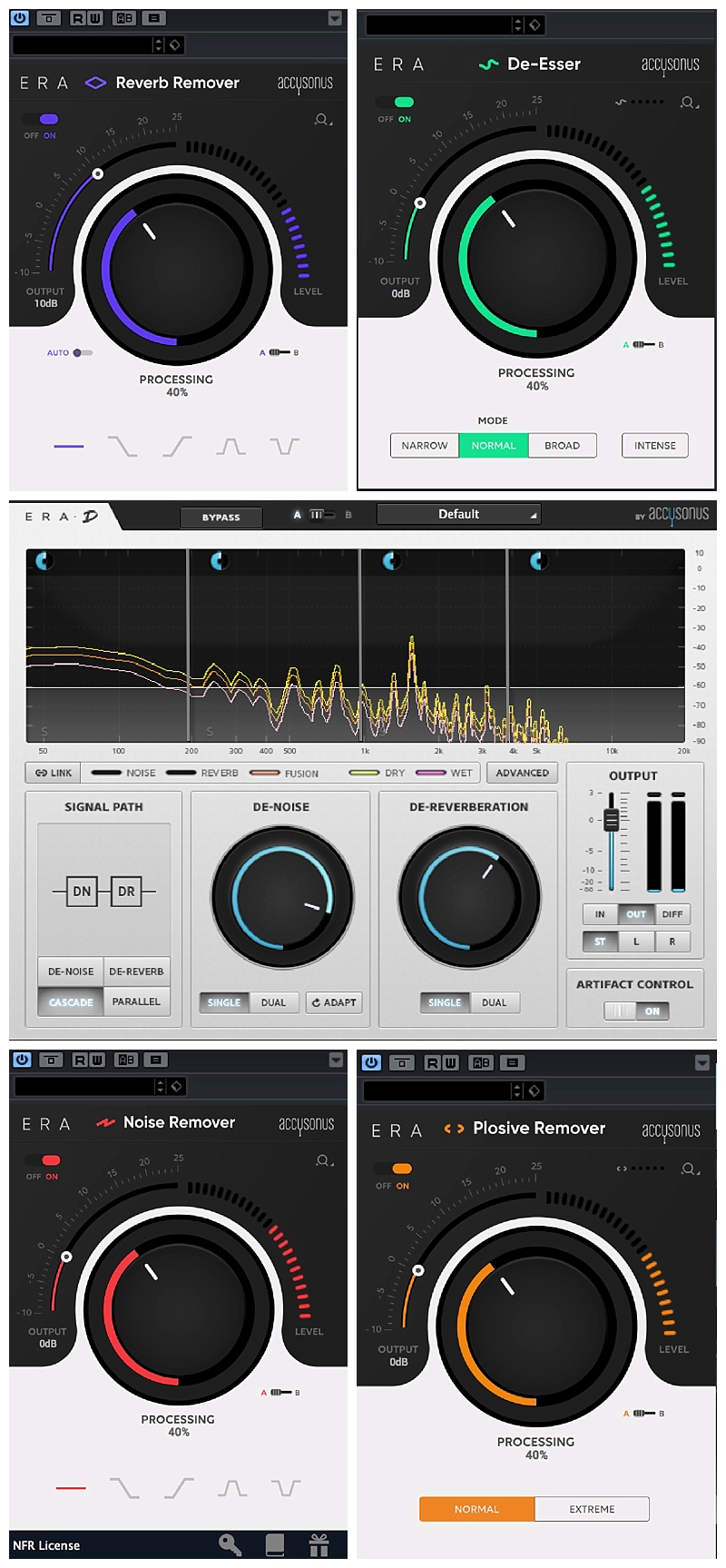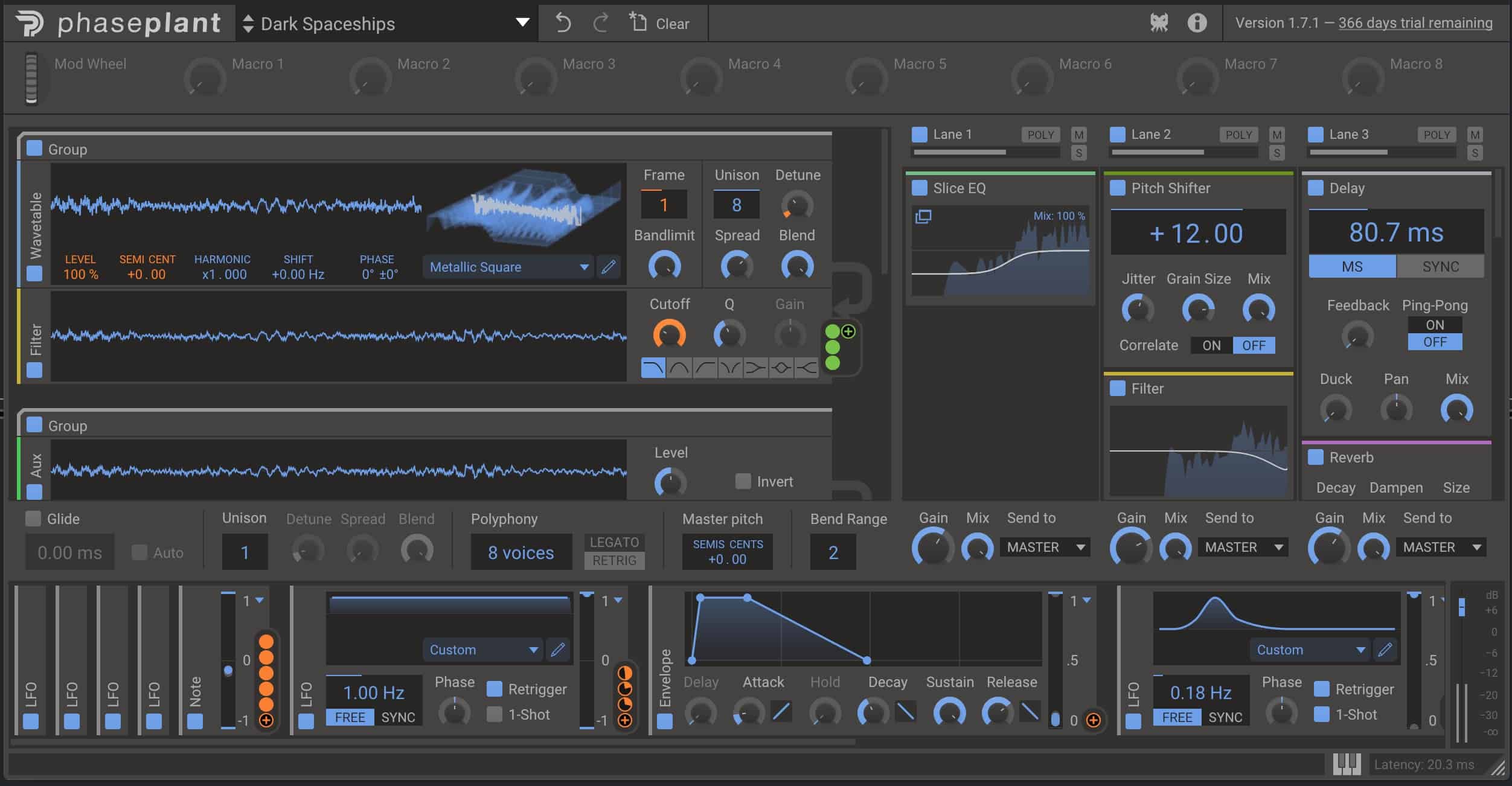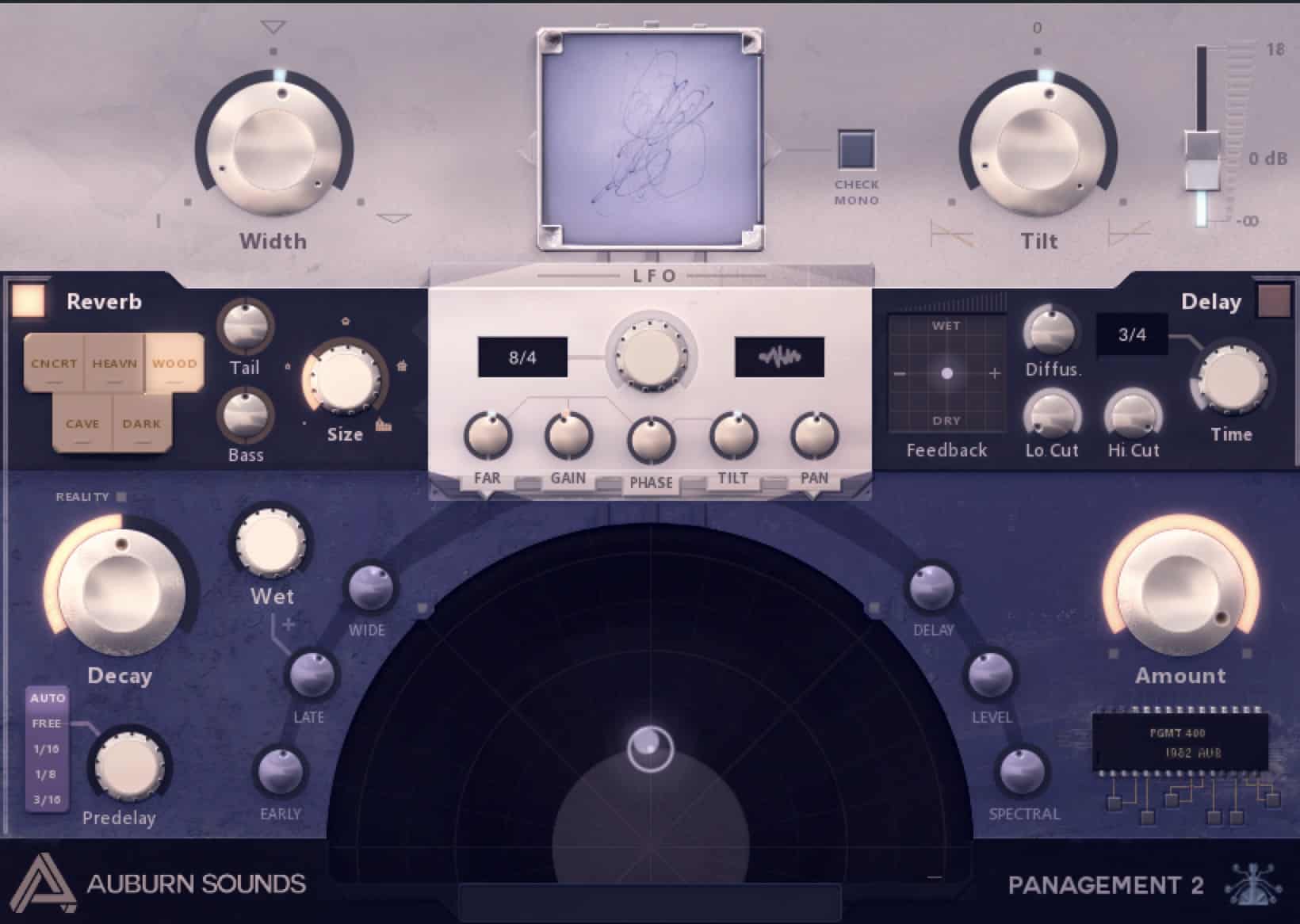Melodyne 4.2 is now updated to Release 4.2, with the latest release Melodyne 4.2 and Logic Pro X 10.4.2 work more closely and efficiently together.
Better integrated via ARA: Melodyne and Logic
Thanks to ARA Audio Random Access, Melodyne 4.2 and Logic Pro X 10.4.2 work more closely and efficiently together. Here are the most important workflow advantages in a nutshell.
You can open tracks without transfers: Just load Melodyne as an insert effect, start playback and the entire track will appear automatically in Melodyne. There is no further need for transfers.
Melodyne follows all changes you make to the track: Melodyne compares its contents to those of the audio track and accurately replicates any lengthening, shortening or movement of regions.
Real copies and ghost copies of regions: When regions are copied, looped or cloned, the Melodyne content behaves accordingly as a real copy or as a ghost copy (Loop).
Region-based mixing: Regions edited with Melodyne now support all the mix functions of the region inspector in Logic: Region Gain, Mute and Fades.
You can use Melodyne as early as the comping stage: Now you can edit takes with Melodyne before committing yourself to a choice between them, which gives you a more realistic assessment of their respective merits, leading to better results.
The management of transfer files is a thing of the past: Thanks to ARA, there is no need anymore to keep transfer files in mind and archive them or pass them on to collaborators.
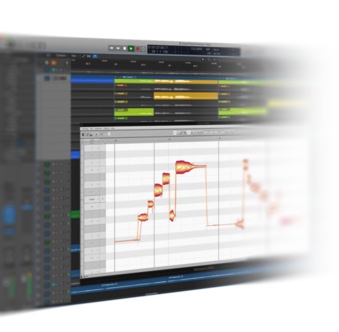
New functions and improvements in Melodyne 4.2
ARA in Logic: Melodyne 4.2 supports ARA integration into Apple’s new Logic Pro X 10.4.2. With ARA, transfers are no longer necessary in Logic, and Melodyne follows all changes made to the audio track.
The transfer path in Cakewalk/Sonar: When using the Melodyne VST3 plug-in in Cakewalk/Sonar, the transfer path is now created automatically within the current project (Cakewalk Projects / / Melodyne / Transfers).
Improved interaction: Melodyne 4.2 interacts even better with Studio One and now requires Studio One Version 3.5.6 or later.
Additional keyboard shortcut: You can now assign a keyboard shortcut from the Preferences dialog for the command “Reseparate Notes at Starting-Point Lines” that appears in the context menu in Note Assignment Mode; the shortcut is then also available in edit mode.
Bug fixes
- Fixed: In Studio One, in projects with many Melodyne clips, the generation of additional Melodyne instances (using the command “Open in Melodyne”) sometimes slowed down the program.
- Fixed: In Studio One under Windows, the color of the note background used to change when you altered the zoom level.
- Fixed: In Studio One, the function “Unison Spread” sometimes shifted the notes in Melodyne several octaves.
- Fixed: In Studio One, use of the Note Separation Tool under certain circumstances led to a crash.
- Fixed: In Studio One, the note display (the lines superimposed on the waveform) was previously not updated when notes were deleted in Melodyne.
- Fixed: In Studio One, in the case of copied events, “Follow Clip Selection in the DAW” resulted in the wrong bars being shown.
- Fixed: In Cakewalk/Sonar, the export of a 16-bit audio file edited with Melodyne sometimes led to a crash.
- Fixed: In Cakewalk/Sonar, use of the Freeze function sometimes led to a crash.
- Fixed: In all DAWs with ARA, changes to the key or scale were previously not saved.
- Fixed: In all DAWs with ARA, use of the Compare switch stopped local playback in Melodyne.
- Fixed: In Logic 10.3, the opening of some projects with Melodyne could lead to a crash.
- Fixed: In Digital Performer, the opening of projects previously edited with Melodyne sometimes led to a crash.
- Fixed: In the plug-in, the command “Restore File to Original State” could under certain circumstances result in the wrong notes being deleted.
- Fixed: Canceling a transfer could lead to a display error or even (if you proceeded with editing ) to the DAW crashing.
- Fixed: In the plug-in, the assignable keyboard shortcut “Repeat Last Menu Action” did not work.
- Fixed: If the Scale Window was open when you switched from edit mode to Note Assignment Mode, the wrong area of the timeline used to be displayed.
- Fixed: In the Sound Editor, no peak values were displayed for the spectrum when Note Assignment Mode was active.
- Fixed: In Melodyne studio’s track list, the “Edit” and “Reference” buttons could both be activated by Alt-clicking.
- Fixed: In Melodyne studio, when multiple tracks were copied simultaneously, their contents were sometimes swapped.
- Fixed: In Melodyne essential, the assignable keyboard shortcut for “Separate Notes as Trills” was missing.
- Fixed: In Melodyne essential, opening a document saved by Melodyne studio sometimes resulted in the wrong track being displayed.
- Fixed: In the stand-alone application, it was impossible to copy and paste notes in Tempo Assignment Mode.
- Fixed: In the stand-alone application, a new detection sometimes led to the audio being offset in the timeline.
- Fixed: In the stand-alone application under macOS Version 10.12, crashes sometimes occurred when the import audio function was used.

